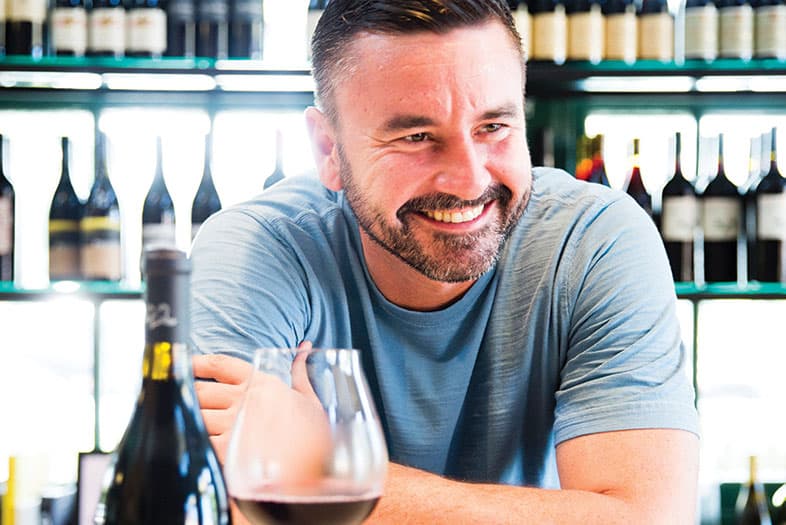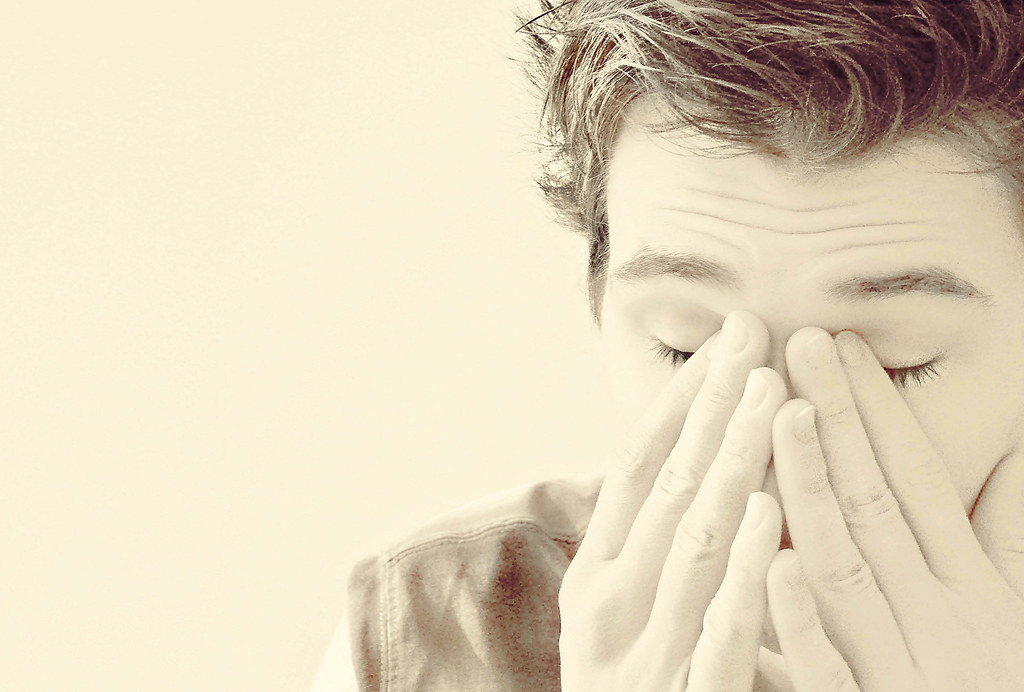
Magicians are a funny bunch. They pull rabbits out of hats and keep white doves around for company. But whether it’s guessing which card someone’s pulled out of a deck or making themselves disappear—they’re pretty good at the art of illusion.
So what if you made yourself a master of illusion? What if, for instance, you could fool yourself out of a bad habit? In theory, breaking a bad habit should be pretty simple. You don’t need Jedi mind tricks to circumvent bad habits because you’re totally in control; you have the power to change.
A recent study by the Centers for Disease Control and Prevention (CDC) found that up to 40% of the leading causes of death in the U.S. are preventable. The primary changes needed include reducing tobacco use, improving diet, and becoming more physically activity. Sounds like a lot of bad habits are wreaking havoc on our health.
One of the biggest problems we’re trying to solve is how to help people change their bad habits into good ones. It’s not an easy problem to solve. But believe it or not, we find ways to motivate our users to do things like walk a couple of extra blocks a day or go to bed 15 minutes earlier every night.
How do we do this? Magic.
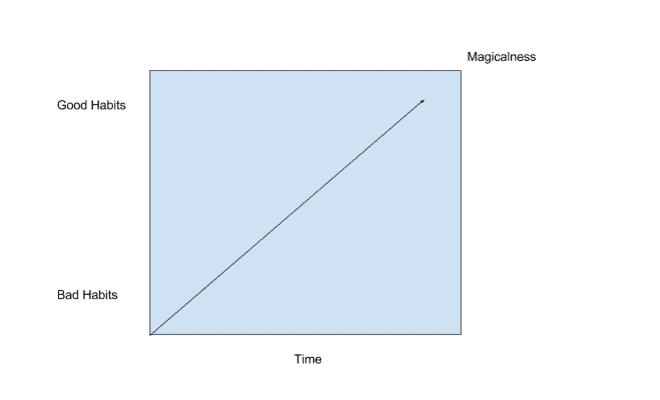
CHANGING HABITS WITH BEHAVIORAL SCIENCE
OK, so we don’t really use magic or (officially) employ wizards, but we are constantly practicing new ways to help people change their habits with a little something called behavioral science.
So what’s behavioral science? In the simplest terms, it’s the study of human behavior. The school of thought in behavioral science is that humans are irrational in predictable ways—there’s a pattern in our irrational choices. We don’t always act in our own best interests. Sometimes it’s easier to eat a candy bar than cook a healthy dinner—even though making a healthy meal is better in the long run, eating something convenient is the path of least resistance. We make great big resolutions on January 1st (I’m going to lose 35lbs this year!), instead of small, measurable goals that are easier to achieve (I’m going to lose 5lbs this month by walking to and from work!). But there are behavioral hacks we can put into action to re-educate our irrational human brains.
THE FRESH START EFFECT
One of the hacks we’ve tested is called the Fresh Start Effect. The Fresh Start Effect refers to the human tendency to start goals at the beginning of a new time period (think New Year’s resolutions or starting a diet on a Monday, instead of a Friday). Here’s the cool part: These temporal landmarks create a moment in time that we can pivot, or change, our habits.
In the insight below, we used the Fresh Start Effect to help users feel well-rested when they returned from a trip and to build good habits for next time. (Don’t people always say they need a vacation from their vacation?)
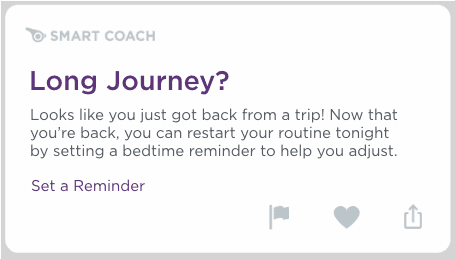
A TALE OF TWO IDENTITIES
Here’s another way to look at it: Related research shows that we see our present and past selves as two different identities. We actually look at past selves less favorably than our present selves. For instance, you might often pin past mistakes to the person you used to be. And you’re not alone. We all do it.
Let’s say your birthday’s coming next week, and you’re turning 30. You’re not in your 20s anymore. You won’t do crazy all-night drinking-sprees, you won’t suffer through 24-hour hangovers, and you will NOT eat fast food the next day. You are sophisticated now. And you will prove it to yourself. Here’s an insight we created to speak to that. As you can see, we use the Fresh Start Effect, in combination with how people perceive the mistakes of their past, to encourage this post-birthday plan to tuck into bed early.
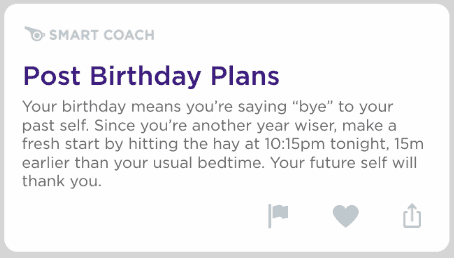
The truth is, changing behavior goes beyond just theories. It takes a lot of research and exploration to move the needle in a positive direction. While there’s no one magic method to transform bad habits into good ones overnight, we’re investigating lots of strategies that’ll work in different situations. We’ll share them with you as we continue to find results. In the meantime, just know that we’re practicing behavior change, building personalized experiences and exploring new ways to help you reach your goals every day. It’s what we do.
